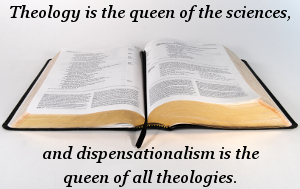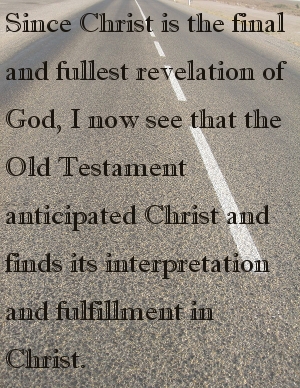 Republished with permission from Dr. Reluctant. In this series, Dr. Henebury responds to a collection of criticisms of dispensationalism entitled “95 Theses against Dispensationalism” written by a group called “The Nicene Council.” Read Part 1, Part 2, Part 3, Part 4.
Republished with permission from Dr. Reluctant. In this series, Dr. Henebury responds to a collection of criticisms of dispensationalism entitled “95 Theses against Dispensationalism” written by a group called “The Nicene Council.” Read Part 1, Part 2, Part 3, Part 4.
Thesis 24
Despite the dispensationalists’ partial defense of their so-called literalism in pointing out that “the prevailing method of interpretation among the Jews at the time of Christ was certainly this same method” (J. D. Pentecost), they overlook the problem that this led those Jews to misunderstand Christ and to reject him as their Messiah because he did not come as the king which their method of interpretation predicted.
Response: It is not advisable to refer to dispensational interpretation as “literalism”—so-called or otherwise, since this leads to misunderstandings and misrepresentations (see below). It is far better to treat the Bible the same way one would treat any other book. It seems preposterous to us to scout around for an alternative hermeneutics just because the Bible is the Word of God. In fact, it is precisely because the Bible is the Word of God to man that one would expect it not to require some esoteric interpretation unless very good reasons could be given for doing so.
Although some evangelicals would disagree, we think there is great wisdom contained in these words of Peters:
If God has really intended to make known His will to man, it follows that to secure knowledge on our part, He must convey His truth to us in accordance with the well-known rules of language. He must adapt Himself to our mode of communicating thought and ideas. If His words were given to be understood, it follows that He must have employed language to convey the sense intended, agreeably to the laws grammatically expressed, controlling all language; and that, instead of seeking a sense which the words in themselves do not contain, we are primarily to obtain the sense that the words obviously embrace, making due allowance for the existence of figures of speech when indicated by the context, scope or construction of the passage. (George N. H. Peters, The Theocratic Kingdom, 1.47)
That many Jews in the time of Jesus expected Him to fulfill the Word by setting up His literal (not spiritual) messianic kingdom at His first advent was due in part to their not realizing that He must first suffer and become “sin for us” (Isa. 53) before He would come as king (e.g. Matt. 26:64, 27:11 with Dan. 7:13-14) They did not see that there would be a time-gap between the first and second advents (see Mic. 5:2, Isa. 61:1-2, Lk. 1:31-33).
Unless they are heretics, all Christians believe in a time gap between the advents. And they do this, not by employing some allegorizing hermeneutic (which would be suspicious as an apologetic), but rather, by believing what the Bible says. Christ will come again (Lk. 18:8, Jn. 14:1-3, Acts 1:11, Rev. 22:20).
Finally, how strange it was that those who were closest to Him, who heard more of His teaching than anyone else, should ask Him, “Lord, will you at this time restore the kingdom to Israel?” (Acts 1:6). Apparently not only did they expect a literal earthly kingdom in line with OT predictions, but they also appeared not to think the Church was the “New Israel”! And Jesus said nothing to alter their expectation!
 Republished with permission from Dr. Reluctant. In this series, Dr. Henebury responds to a collection of criticisms of dispensationalism entitled “95 Theses against Dispensationalism” written by a group called “The Nicene Council.” Read the series so far.
Republished with permission from Dr. Reluctant. In this series, Dr. Henebury responds to a collection of criticisms of dispensationalism entitled “95 Theses against Dispensationalism” written by a group called “The Nicene Council.” Read the series so far.



Discussion